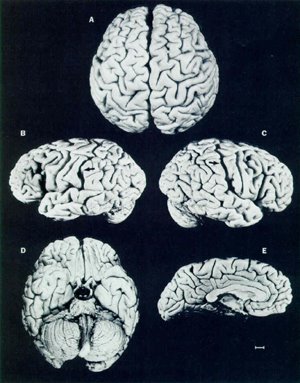
To begin to reveal the layers of time travel embedded within season four we might first consider time dilation. This phenomenon occurs when one of two identical clocks appears to count time slower than its twin. This 'slowing down' is only considered so in the context of the observers frame of reference. In Einstein's theory of special relativity, the time dilation effect is reciprocal: as observed from the point of view of any two clocks which are in motion with respect to each other, it will be the other party's clock that is time dilated.
Time dilation would make it possible for passengers in a fast-moving vehicle to travel further into the future while ageing very little, in that their great speed slows down the rate of passage of on-board time. That is, the ship's clock or a human travelling with it shows less elapsed time than the clocks of observers on Earth. For example, one year of travel might correspond to ten years at home. Indeed, a constant 1 g acceleration would permit humans to travel as far as light has been able to travel since the big bang (some 13.7 billion light years) in one human lifetime. The space travellers could return to Earth billions of years in the future.
In the Economist, Daniel Faraday asks his colleague on the freighter to launch a projectile onto the Island. As we hear his team member count down the kilometers, we, like Daniel, cant see or hear anything. Curiously, the projectile lands thirty minutes later and we find that the clock extracted from the depths of the payday is not synched with Daniel's clock anymore, meaning time on and off the island are different, meaning Lost is employing time dilation in an attempt to deconstruct time. Excellent.

In The Constant, when Des and Sayid leave the Island on the helicopter back to the freighter it appears on the beach that a day passes before Jack et cie hear from them even though the freighter is only 40 miles away, arguably a 20 minute flight. When questioned, Daniel admits that the perception of time on the Island might be different than the time experienced off the Island otherwise known as a contraction of time when leaving or coming to the Island. He says that as long Frank uses the bearings that were given to him, the people on the helicopter should be fine. If not, there could be "side-effects".


.jpg)
No comments:
Post a Comment